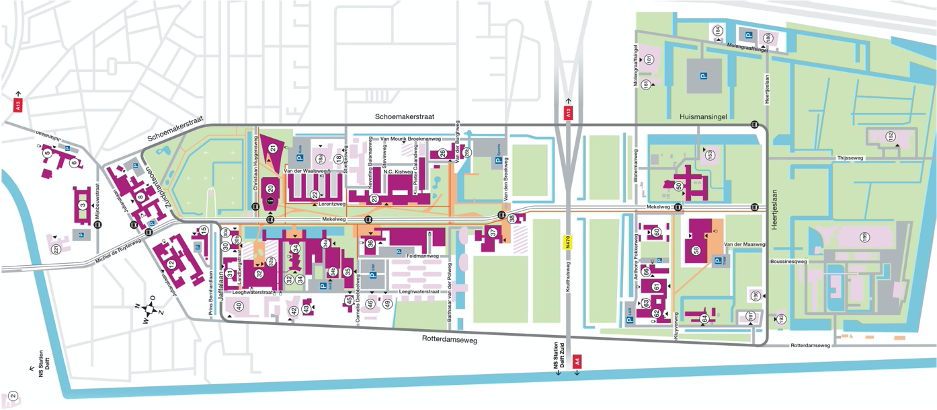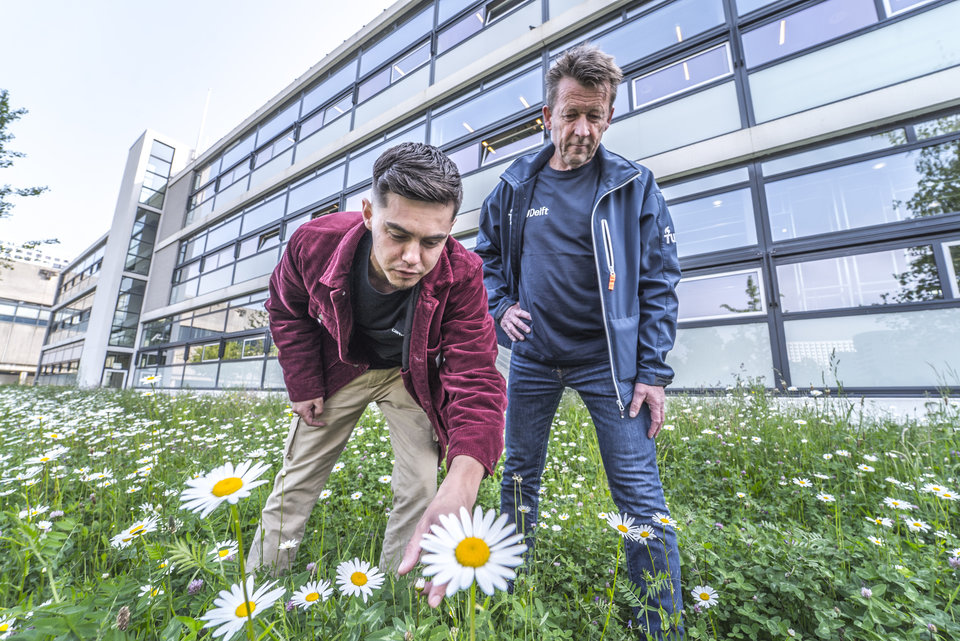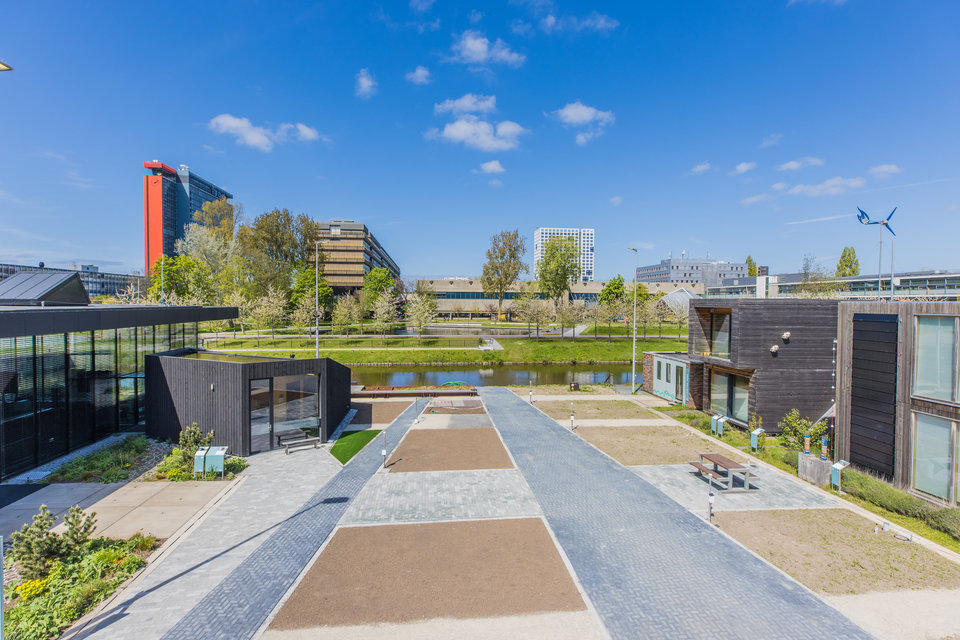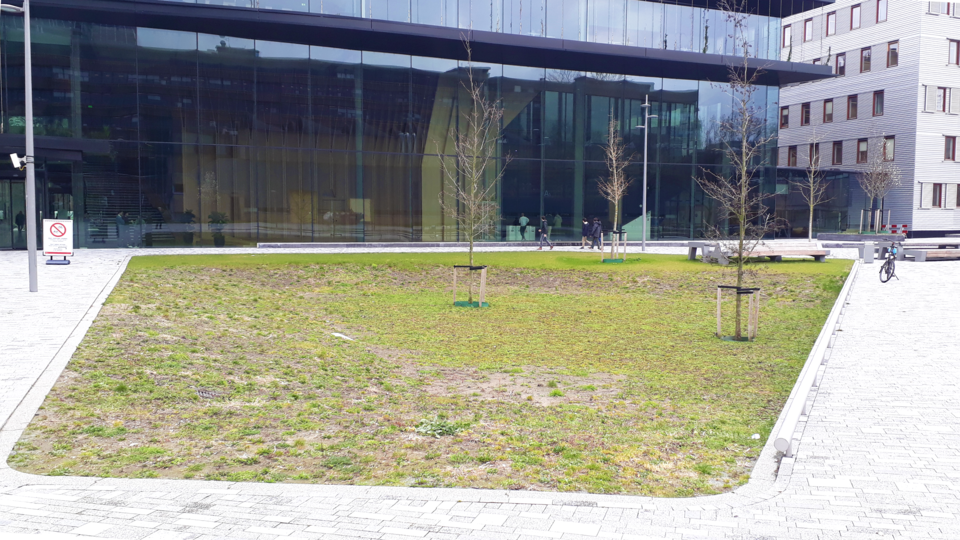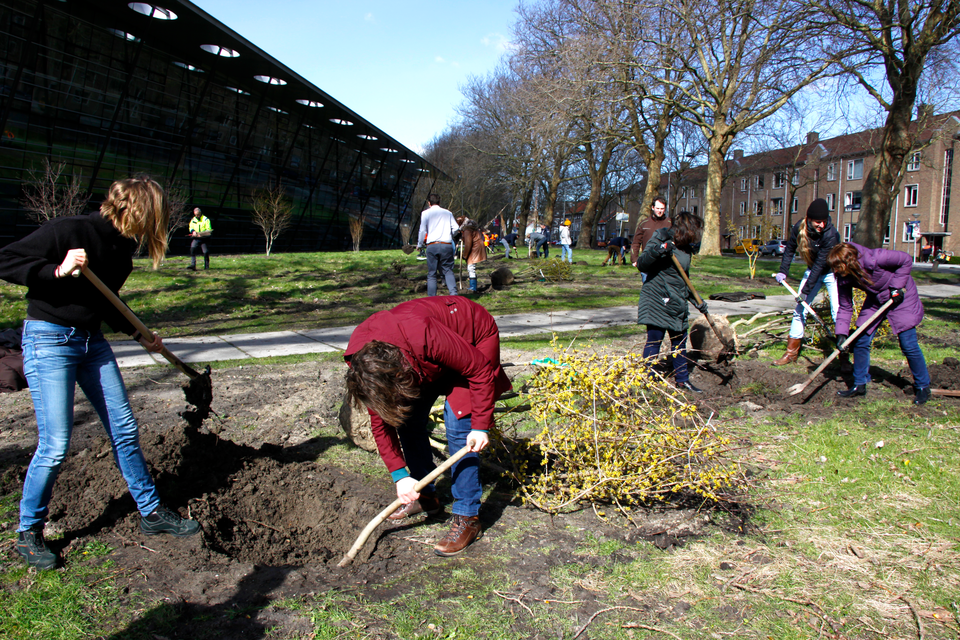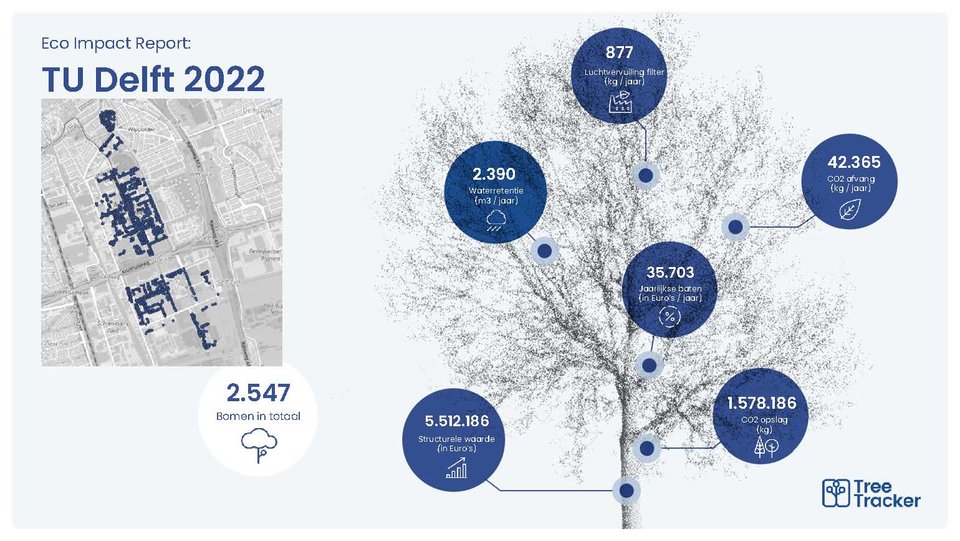TU Delft strives for a natural, biodiverse campus where people and nature co-exist. The guiding principle is that every project on campus must contribute to biodiversity and that green and blue form part of multiple aims, among which becoming climate adaptive.
The TU Delft Campus can be divided into three parts: Campus North, Campus Central and Campus South. Campus North is the oldest part of the campus, designated as protected cityscape. Campus Central is the area around the Mekelpark and is the heart of TU Delft. Most of the faculty buildings are located in this area. Campus South is the area south of the Kruithuisweg motorway. It has been allocated to external companies, start-ups, labs and a few faculty buildings. TU Delft is currently expanding other functions to this area.
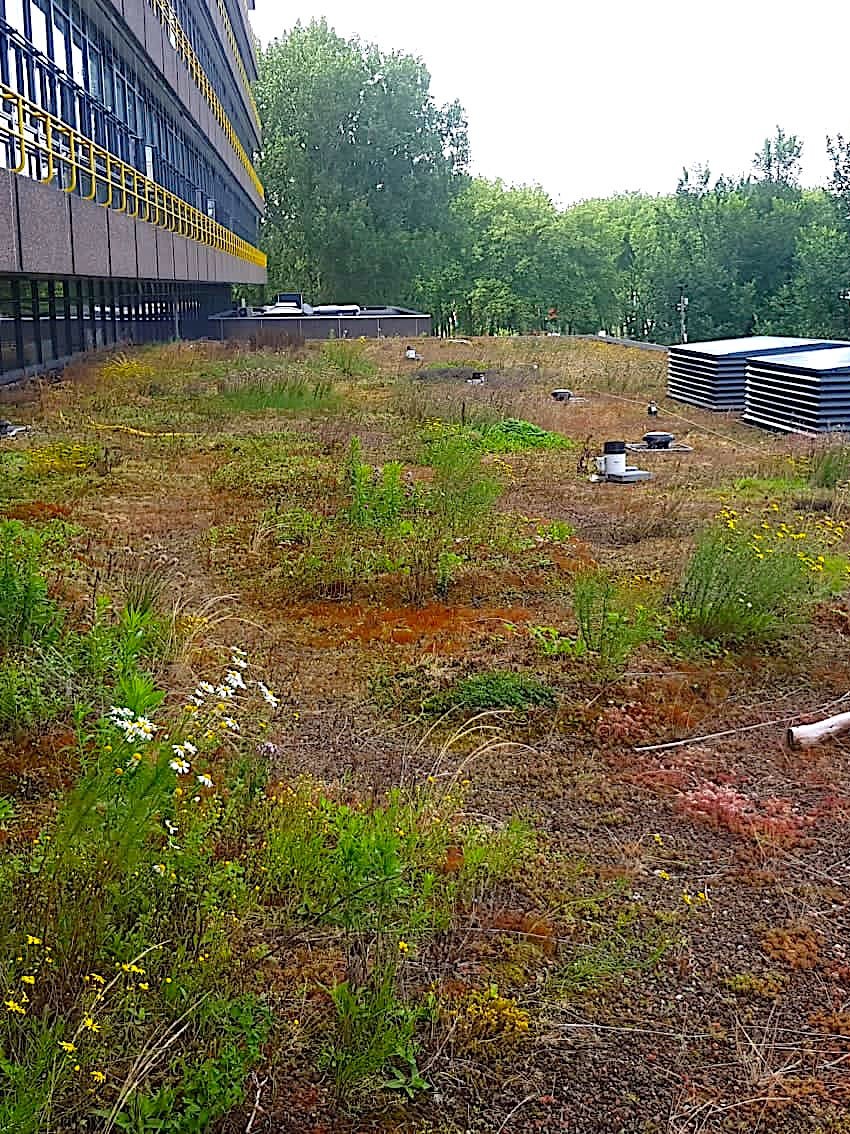
Water management
Delfland, of which TU Delft is a part, is the most urbanised water board area in the Netherlands. The TU Delft Campus is part of a large polder system that regulates the water. Measures are needed to improve the sustainability of the campus, especially to make the campus climate-adaptive. Larger quantities of water need to be retained and greenery added. Water collected from roofs will be used to replace clean drinking water presently used for flushing toilets, cleaning, watering plants, etc. Furthermore, useful components can be extracted from wastewater by using helophyte filters, aeration, digesters, algae, and other types of filters.
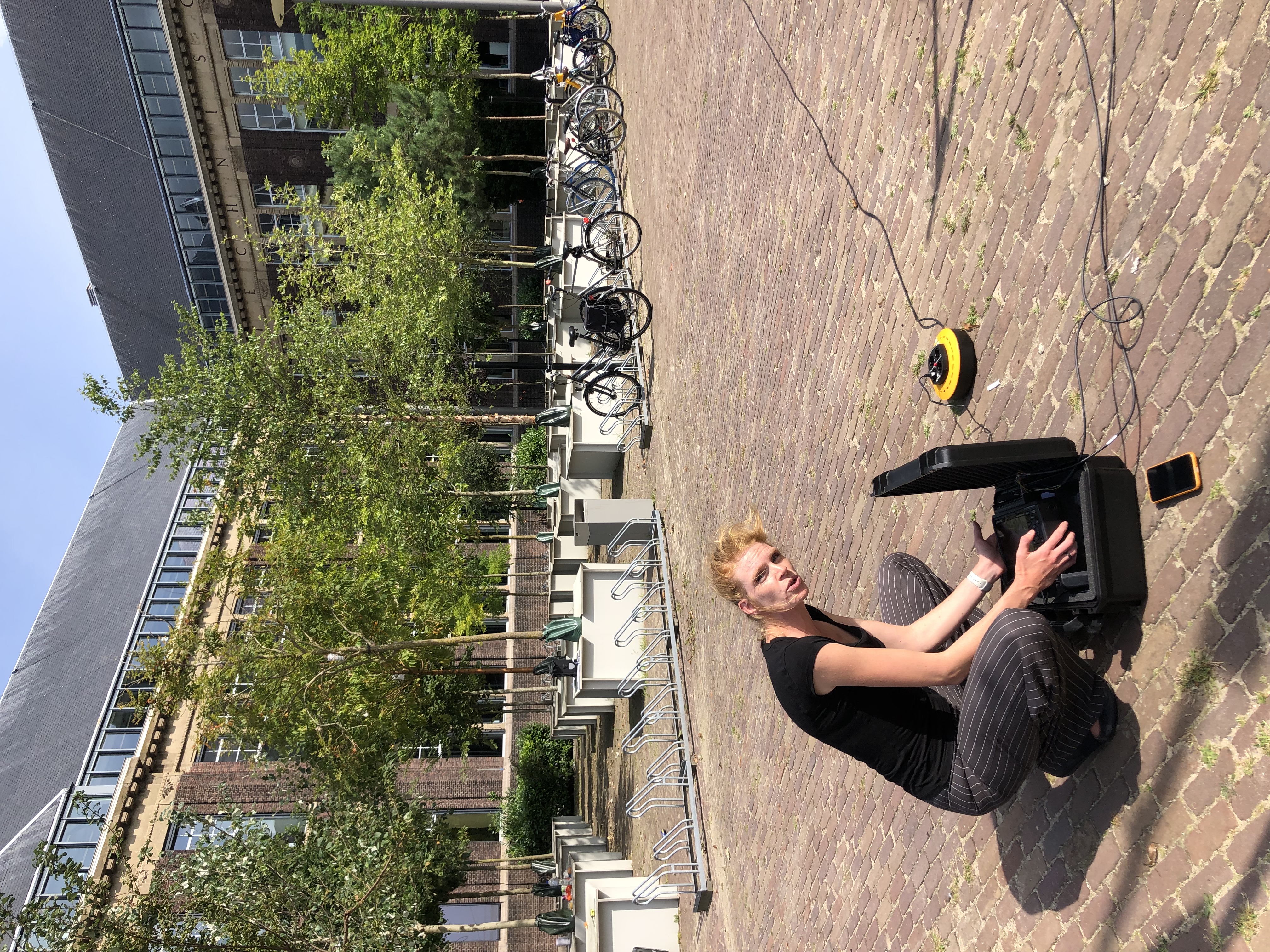
Green on campus
There are 2568 trees and 548,653 m2 of plants and grass spread over the campus. According to the CO2 Roadmap [Blom & Dobbelsteen 2019] this greenery can absorb 206 tons CO2-equivalents annually. We are working on implementing more greenery. A ‘climate arboretum’ has been built next to the faculty of Architecture and the Built Environment to study the effect of trees on the urban microclimate. We are also looking into the possibility of reintroducing peat on the campus, which is a great carbon absorber.
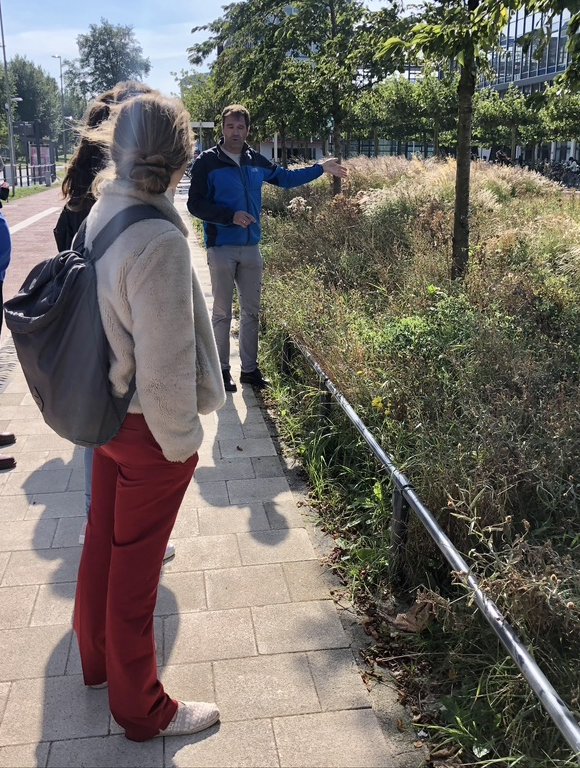
Biodiversity
Greenery is needed to improve biodiversity of the campus. We are developing an integral approach to increase the diversity of trees, and other plants, as well as animals, among which insects. Mixtures are sown of flowers that naturally occur in this region, which makes a positive contribution to the insect population. More insects lead to more birds. A beehive will be placed and monitored at The Green Village. The campus is allowing nature to take its course. No chemicals are used to control weeds.
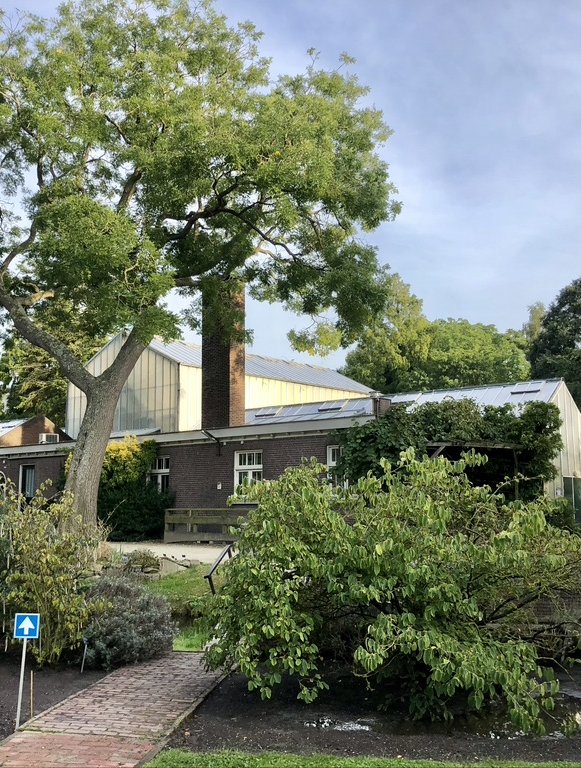
Botanical Garden
The Botanical Garden is part of TU Delft Campus North, which with a large collection of plants is a crucial connection of greenery between the city and the campus. This most biodiverse area of the campus has been established and safeguarded by the Council of State. The Botanical Garden will be used ever more as an open lab to carry out research in the area of biodiversity, water retention, urban microclimate and cooling, particle filtering, carbon sequestration, biobased materials, etc.

